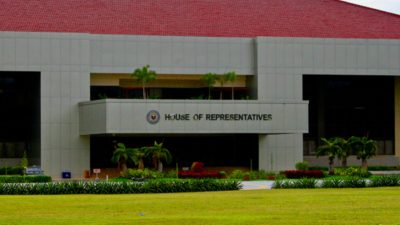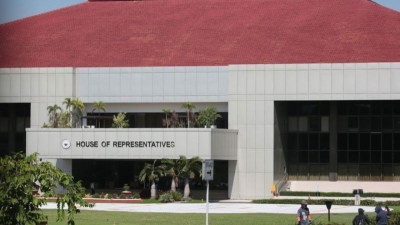MANILA – President Ferdinand R. Marcos Jr. has officially approved a bill that establishes the automatic income classification system for local government units (LGUs), as announced by Malacañang on Friday.
On Thursday, Marcos signed into law Republic Act 11964, known as the “Automatic Income Classification of Local Government Units Act.” This law is designed to introduce a more dynamic approach to advancing local autonomy and unlocking the full economic potential of LGUs.
In a statement, Communications Secretary Cheloy Garafil disclosed, “The Department of Finance (DOF), in collaboration with the Department of Budget and Management (DBM) and in consultation with LGU Leagues, will formulate the law’s implementing rules and regulations (IRR) within three months of its enactment.”
As of now, Malacañang has not yet released a copy of RA 11964.
The new law categorizes provinces, cities, and municipalities based on their income levels and average annual regular income.
Under RA 11964, the Finance Secretary, in consultation with the National Economic and Development Authority (NEDA) and relevant LGU Leagues, holds the authority to modify income ranges based on the actual growth rate of annual regular income since the last income reclassification.
Furthermore, the Secretary of Finance is tasked with conducting regular income reclassifications every three years to ensure alignment with the prevailing economic conditions.
Garafil stated that the initial general income reclassification would take place within six months following the law’s enactment and every three years thereafter.
“In accordance with the newly enacted legislation, the first income reclassification for provinces, cities, and municipalities will be effective on January 1st of the year following the issuance of the income classification table by the Finance Secretary,” she mentioned.
Garafil clarified that municipalities would be categorized into five classes under RA 11964:
First Class: Municipalities with an annual average income of PHP200,000,000 or more.
Second Class: Municipalities earning an average annual income of PHP160,000,000 or more but less than PHP200,000,000.
Third Class: Municipalities earning PHP130,000,000 or more, but less than PHP160,000,000.
Fourth Class: Municipalities with an annual average regular income of PHP90,000,000 or more, but less than PHP130,000,000.
Fifth Class: Municipalities with an average annual income of less than PHP90,000,000.
This income classification system will serve as the foundation for identifying administrative and statutory aids, financial grants, and other types of assistance to LGUs.
It will also play a crucial role in evaluating LGUs’ capacity to carry out development programs and projects.
The law will also serve as a reference for the annual supplemental appropriation for personnel services within an LGU, as well as for the compensation adjustments for LGU personnel, as stipulated in RA 11466, or the Salary Standardization Law of 2019.
Furthermore, it will provide guidance for the creation of new LGUs, determining the number of elective members in the Sangguniang Panlalawigan and the Sangguniang Bayan, issuing free patent titles for residential lands, setting the minimum wage for domestic workers, ensuring LGU properties with the Government Service Insurance System (GSIS), and defining the limitations on the percentage of agricultural land area that can be reclassified and how they can be utilized.
“In light of these considerations, the State recognizes the importance of assessing the financial capability and fiscal position of local government units,” as stated in the law, according to Garafil.
(Amigo Ismael / mnm)







